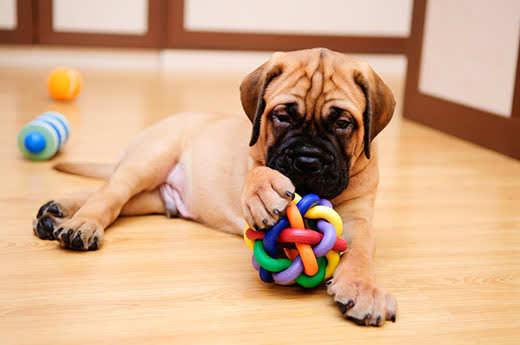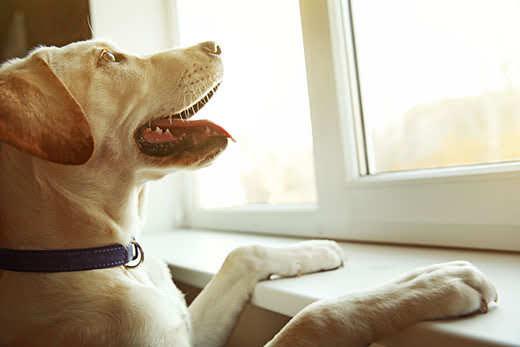
-
Find the right food for your petTake this quiz to see which food may be the best for your furry friend.Find the right food for your petTake this quiz to see which food may be the best for your furry friend.Featured products
 Small & Mini Mature Adult 7+ Dog Food
Small & Mini Mature Adult 7+ Dog FoodHill's Science Plan Small & Mini Breed Mature Adult Dog Food with Chicken is a complete pet food, specially formulated with ActivBiome+ Multi-Benefit Technology.
Tailored nutrition to support graceful ageing in small dogs. Specially made with a synergistic blend of nutrients for energy & vigor.Shop Now Perfect Digestion Large Breed Puppy Food
Perfect Digestion Large Breed Puppy FoodPrecisely balanced nutrition with Hill's ActivBiome+ prebiotic blend actively contributes to supporting digestive health and overall well-being to help your pet feel their best
Shop Now Perfect Digestion Small & Mini Adult Dog Food
Perfect Digestion Small & Mini Adult Dog FoodHill's Science Plan Perfect Digestion Small & Mini Breed Adult Dog Food with Chicken & Brown Rice supports ultimate digestive well-being & a healthy microbiome.
Shop NowFeatured products Kitten Food
Kitten FoodHill's Science Plan Kitten Wet Cat Food Premium Chunks in Sauce with Chicken is a complete pet food for kittens and for pregnant or nursing cats
Shop Now Hairball & Perfect Coat Adult Cat Food
Hairball & Perfect Coat Adult Cat FoodHill's Science Plan HAIRBALL & PERFECT COAT Adult cat food with Chicken is specially formulated to effectively help avoid hairball formation in adult cats while promoting a beautiful coat. Thanks to its mix of essential Omega-6 fatty acids, this food benefits the cat's skin and fur keeping them healthy and shiny. Our Advanced Fibre Technology helps reduce hairballs by naturally promoting their passage through the gut. This food is formulated with high-quality protein for a perfectly balanced, great-tasting recipe.
Shop Now Hypoallergenic Dry Cat Food
Hypoallergenic Dry Cat FoodHILL'S SCIENCE PLAN Hypoallergenic Adult cat food with egg & insect protein is a complete pet food for adult cat 1–6 years old. It's formulated for cats with delicate skin and stomach, with limited high quality novel protein sources & no grain.
Shop Now -
Dog
- Dog Tips & Articles
-
Health Category
- Weight
- Food & Environmental Sensitivities
- Urinary
- Digestive
- Joint
- Kidney
-
Life Stage
- Puppy Nutrition
- Adult Nutrition
- Senior Nutrition
Cat- Cat Tips & Articles
-
Health Category
- Weight
- Skin & Food Sensitivities
- Urinary
- Digestive
- Kidney
-
Life Stage
- Kitten Nutrition
- Adult Nutrition
Featured articles Understanding Your Pet's Microbiome
Understanding Your Pet's MicrobiomeLearn what a pet's microbiome is, how it contributes to your pet's gut & overall health, and why nutrition is important in maintaining healthy microbiomes.
Read More Pet Food Storage Tips
Pet Food Storage TipsWhere you store your cat and dog food can make a big difference in the quality and freshness once it is opened. Here are some common questions and recommendations for optimal storage for all of Hill’s dry and canned cat and dog food.
Read More The Right Diet For Your Pet
The Right Diet For Your PetLearn what to look for in healthy pet food & nutrition, including ingredients, quality of the manufacturer, your pet's age, and any special needs they have
Read More -


Leaving a dog home alone is never easy. Your furry friend will start to whine, pace around the door and beg for attention before you leave the house. While they may seem quiet once you close the front door, who knows what dogs do when you're not home. If you've come home to a few messes and even a few inexplicable situations, you may wish you could be a fly on the wall to watch your pets without them knowing you're there. Let's dive into some of the most common things dogs do while home alone.
Sleep
Wondering what dogs so when you're not home? Most dogs spend a lot of their time catching some Z's. When you're not home to keep your pet busy, they'll likely find a comfortable place to cuddle up and take a siesta. If you're gone for a longer period of time, your pet might even take a few naps.
According to the American Kennel Club, dogs are known to sleep half (or more) of the day, with puppies and senior dogs needing extra sleep to "recharge their batteries." If you think your dog's lying down too much, know that your pet may not be sleeping the whole time. They may be content simply lounging.

Play
After a nice nap, your pet's probably ready to play. But what do dogs do when you're not home when it comes to playing? Some pets will play with the toys left out for them, so make sure they have access to different types of toys to stimulate their brain. If you have other pets at home, they may even play together.
If you're worried about your dog getting enough exercise when you're out, consider hiring a dog walker.
Eat
While many dogs are ready to eat the second the food hits the bowl, some dogs are more grazers than others. They may wait to eat after you leave or just go throughout their day eating small bits at a time. For dogs that are grazers, make sure that you are still feeding them the appropriate amount. Dogs that don't seem to be eating their food may be picky eaters or may have an underlying condition that causes them to not be hungry. Talk to your vet if you're concerned with your dog's eating habits.
Misbehave
Do you have a rule against dogs on your bed? If so, you might want to check your comforters for fur. When you're not home, you're pet may very well be doing exactly what they know is against the rules when you're present. That means jumping up onto counters, nosing around for snacks in the pantry, or worse — eating from the cat's litter box.


Tasty Tips
 Guard
Guard
Your dog protects your home from invaders when you're not home — or at least they think they do. While not all dogs have a protective mentality, some dogs take guard at the window or door and bark when they hear signs of a potential intruder. Though the "intruder" in question may very well be the mail carrier or your next door neighbor. If you regularly hear your dog bark at your arrival or you notice that the blinds or curtains tend move around, that's a good sign your dog is on security detail while you're gone.
Destroy
While not all dogs fall under this category, some pets will destroy items in your home when you're not present. This happens most often in dogs experiencing anxiety or in puppies who haven't been trained yet. Dogs who act out by chewing may target your shoes or the furniture, so if you come home to see items destroyed, talk with an animal behaviorist or sign your pet up for obedience training.
See For Yourself
Still not sure you know what your dog is doing during the day? With advancements in pet technology, it's becoming easier and easier to know exactly what your dog is doing during the day with pet cameras. Some are just simple cameras that let you keep an eye on your house and dog during the day, but there are becoming more and more sophisticated pet cameras every day. Some will allow you to communicate with your dog, some will allow you to dispense treats when they're being good, and some come with ways to interact with your dog so you know they're getting in their playtime. If your dog is allowed to roam free throughout your house, it still may be difficult to know what they're up to all the time, unless you have a camera in every room of the house. But a little glimpse into their every day can be a fun way to keep track of them and make sure they're not getting into trouble.
Now that you know what dogs do when you're not home, you can rest assured your pet is keeping busy while you're out of the house. Remember, leaving a dog home alone for a long period of time is never a good idea. If you're going to be out for some time, make sure there's a pet sitter to feed them, let them out to relieve themselves, and help them get the exercise and mental stimulation they need.


Erin Ollila believes in the power of words and how a message can inform—and even transform—its intended audience. Her writing can be found all over the internet and in print, and includes interviews, ghostwriting, blog posts, and creative nonfiction. Erin is a geek for SEO and all things social media. She graduated from Fairfield University with an M.F.A. in Creative Writing. Reach out to her on Twitter @ReinventingErin or learn more about her at http://erinollila.com.
Related products

Hill's Science Plan Large Breed Adult Dog Food with Lamb & Rice is a complete pet food, specially formulated with ActivBiome+ Multi-Benefit Technology.
This food is specifically designed to fuel the energy needs of large breed dogs during the prime of their life.

Precisely balanced nutrition with Hill's ActivBiome+ prebiotic blend actively contributes to supporting digestive health and overall well-being to help your pet feel their best

Hill's Science Plan Perfect Digestion Small & Mini Breed Adult Dog Food with Chicken & Brown Rice supports ultimate digestive well-being & a healthy microbiome.

Hill's Science Plan Small & Mini Breed Mature Adult Dog Food with Chicken is a complete pet food, specially formulated with ActivBiome+ Multi-Benefit Technology.
Tailored nutrition to support graceful ageing in small dogs. Specially made with a synergistic blend of nutrients for energy & vigor.
Related articles

Learn about snake bites on dogs, including clinical symptoms to look for, what to do if you think your dog was bitten, and treatment & prevention options.

Discover the causes, signs, and treatments of kidney disease in dogs and find methods of supporting your dog's kidney health. Learn more at Hill's Pet South Africa.

Discover how the field of dog science is giving us more and more insights into the inner workings of our furry best friends.

Dog obesity is a significant problem - learn more about helping your dog become trimmer and healthier through improved nutrition.

Put your dog on a diet without them knowing
Our low calorie formula helps you control your dog's weight. It's packed with high-quality protein for building lean muscles, and made with purposeful ingredients for a flavorful, nutritious meal. Clinically proven antioxidants, Vitamin C+E, help promote a healthy immune system.
Put your dog on a diet without them knowing
Our low calorie formula helps you control your dog's weight. It's packed with high-quality protein for building lean muscles, and made with purposeful ingredients for a flavorful, nutritious meal. Clinically proven antioxidants, Vitamin C+E, help promote a healthy immune system.

